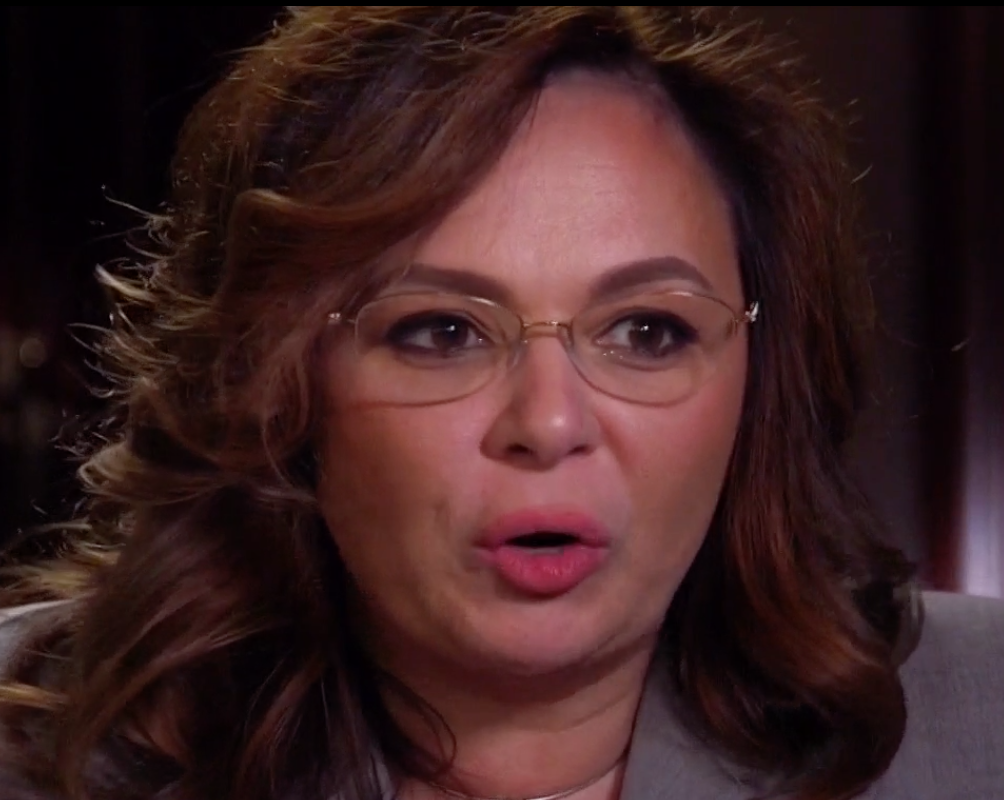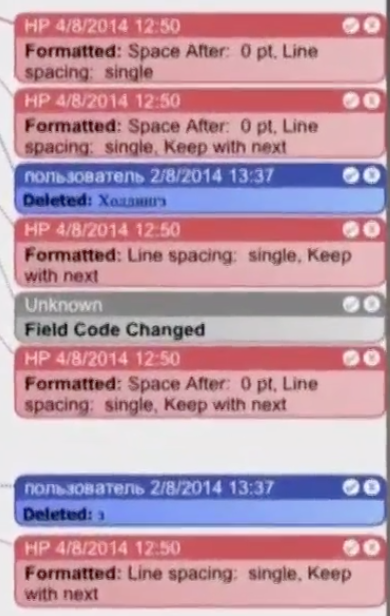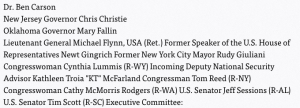On Manafort’s Referral of the Papadopoulos Offer(s)
I want to return to something from the George Papadopoulos plea agreement in light of last week’s HPSCI Russia reports. In it, there was a footnote describing Paul Manafort’s response to Papadopoulos’ email about efforts to set up a meeting between Trump and Putin.
On or about May 21, 2016, defendant PAPADOPOULOS emailed another high-ranking Campaign official, with the subject line “Request from Russia to meet Mr. Trump.” The email included the May 4 MFA Email and added: “Russia has been eager to meet Mr. Trump for quite sometime and have been reaching out to me to discuss.”2
2 The government notes that the official forwarded defendant PAPADOPOULOS’s email to another Campaign official (without including defendant PAPADOPOULOS) and stated:
“Let[‘]s discuss. We need someone to communicate that DT is not doing these trips. It should be someone low level in the campaign so as not to send any signal.”
The Majority HPSCI Report explains the email, first, by noting that it accompanied another one Papadopoulos forwarded regarding a proposed Greek meeting. Then it described Gates and Manafort referring the requests for “these meetings” to a correspond to both.
(U) Although the Committee has no information to indicate that Papadopoulos was successful in setting up any meetings between the Trump campaign and the Russian government, he worked with campaign chief executive Steve Bannon to broker a September 2016 meeting between candidate Trump and Egyptian president Abdel Fatah el-Sisi.181 Trump was apparently pleased with the meeting, which he described In an Interview as “very productive,” describing el-Sisi as “a fantastic guy.”182
(U) While on a trip to Athens, Greece in May 2016, Papadopoulos sent an email to Manafort stating that he expected to soon receive “an official invitation for Mr. Trump to visit Greece sometime this summer should his schedule allow.”183 In the same email to Manafort, Papadopoulos also forwarded a meeting Invitation from Ivan Timofeev, Director or [sic] Programs for the Russian International Affairs Council, and claimed that “Russia has been eager to meet Mr. Trump for quite sometime and have been reaching out to me to discuss. thought it would be prudent to send to you.”184
(U) As of May 2016, Manafort had not yet been elevated to campaign chairman, but had a long track record of work abroad. Manafort forwarded Papadopoulos’ email to his business and campaign deputy [Rick Gates] noting that we need someone to communicate that D[onald] T[rump] is not doing these trips.” 185 Manafort and [Gates] agreed to assign a response of a “general letter” to “our correspondence coordinator.” the person responsible for “responding to all mail of non-importance.”186
Curiously, this account is based off Gates’ production; it should exist in the campaign’s production as well.
The clarification would seem to suggest that Manafort was treating all requests for Trump meetings as formalities, to be responded to with a regrets letter sent by a low level clerk. But it still doesn’t explain what Manafort meant when he said “It should be someone low level in the campaign so as not to send any signal.”
But there’s another detail that may undermine the claim that Manafort responded to all requests for Russian meetings with regrets. As the Minority HPSCI Report makes clear, Manafort received another request for a Trump-Putin meeting within days of the Papadopoulos one, one tied to Aleksandr Torshin’s trip to the NRA meeting.
On May 10, 2016, Erickson reached out to Rick Dearborn, a longtime senior advisor to Jeff Sessions and a senior campaign official:
“Switching hats! I’m now writing to you and Sen. Sessions in your roles as Trump foreign policy experts / advisors. […] Happenstance and the (sometimes) international reach of the NRA placed me in a position a couple of years ago to slowly begin cultivating a back-channel to President Putin’s Kremlin. Russia is quietly but actively seeking a dialogue with the U.S. that isn’t forthcoming under the current administration. And for reasons that we can discuss in person or on the phone, the Kremlin believes that the only possibility of a true re-set in this relationship would be with a new Republican White House.”44
The email goes on to say that Russia planned to use the NRA’s annual convention to make “first contact” with the Trump campaign and that “Putin is deadly serious about building a good relationship with Mr. Trump. He wants to extend an invitation to Mr. Trump to visit him in the Kremlin before the election.”45
Dearborn communicated this request on May 17, 2016 to the highest levels of the Trump campaign, including Paul Manafort, Rick Gates, and Jared Kushner. The effort to establish a back-channel between Russia and the Trump campaign included a private meeting between Torshin and “someone of high rank in the Trump Campaign.”46 The private meeting would take place just prior to then-candidate Trump’s speech to the NRA. As explained in Dearborn’s email, such a meeting would provide Torshin an opportunity “to discuss an offer he claims to be carrying from President Putin to meet with DJT. They would also like DJT to visit Russia for a world summit on the persecution of Christians at which Putin and Trump would meet.”47
The account of the NRA outreach is a bit muddled between the two reports. But Kushner passed on a related one from Rick Clay — not because he didn’t want to take the meeting, but because he worried they couldn’t verify the back channel.
“Pass on this. A lot of people come claiming to carry messages. Very few we are able to verify. For now I think we decline such meetings,” as well as “(b)e careful.”
But as both reports make clear, Don Jr did meet, briefly, with Torshin, though there is no known record of their face-to-face exchange.
The Majority’s finding on this topic affirms that Trump Jr. met with a Russian government official, Alexander Torshin, at the event, but conveniently concludes that “the Committee found no evidence that the two discussed the presidential election.”48 As with many findings in the report, this relies solely on the voluntary and self-interested testimony of the individual in question, in this case Trump Jr. The Majority refused multiple requests by the Minority to interview witnesses central to this line of inquiry, including Torshin, Butina, Erickson, and others.
These accounts come from the Sessions and Dearborn production. Again, both should also be available via the campaign, but that’s not where they came from, and the NRA requests were also sent to Manafort and Gates (so Gates’ production should include any response from Manafort).
As noted in both reports, Don Jr. met Torshin briefly on May 19, two days after the request for a high level meeting got passed onto senior people in the campaign.
Both reports separate the timelines out by source — and the Majority one presents events out of order, which adds to the confusion. But here’s how the two outreach efforts look.
May 4 [this gets forwarded to Lewandowski, Clovis, and Manafort by May 21]:
Timofeev to Papadopolous “just talked to my colleagues from the MFA. [They are] open for cooperation. One of the options is to make a meeting for you at the North America Desk, if you are in Moscow.”
Papadopolous to Timofeev: “Glad the MFA is interested.”
May 4, Papadopoulos to Lewandowski (forwarding Timofeev email):
“What do you think? Is this something we want to move forward with?”
May 5: Papadopoulos has a conversation with Sam Clovis, then forwards Timofeev email, with header “Russia updates.”
May 8, Timofeev to Papadopoulos:
Emails about setting Papadopoulos up with the “MFA head of the US desk.”
May 10, Paul Erickson email to Rick Dearborn proposes a meeting between Torshin and “someone of high rank in the Trump Campaign … to discuss an offer [Torshin] claims to be carrying from President Putin to meet with DJT.”
May 13, Mifsud to Papadopoulos:
“an update” of what they had discussed in their “recent conversations,” including: “We will continue to liaise through you with the Russian counterparts in terms of what is needed for a high level meeting of Mr. Trump with the Russian Federation.”
May 14, Papadopoulos to Lewandowski:
“Russian govemment[] ha[s] also relayed to me that they are interested in hostingMr. Trump.”
May 16: Rick Clay email to Rick Dearborn mentions an “overture to Mr. Trump from
President Putin.” Kushner responds, “Pass on this. A lot of people come claiming to carry messages. Very few we are able to verify. For now I think we decline such meetings.”May 21, Papadopoulos to Paul Manafort, forwarding May 4 email:
“Request from Russia to meet Mr. Trump”
“Regarding the forwarded message, Russia has been eager to meet Mr. Trump for quite some time and have been reaching out to me to discuss.”
May 21, Manafort forwards Papadopoulos email to Rick Gates:
“Lets discuss. We need someone to communicate that DT is not doing these trips. It should be someone low level in the campaign so as not to send any signal.”
As noted, there should be more in the Gates production to describe what Manafort was up to, if he was indeed opposed to meetings themselves.
Of course, we don’t have that — though Mueller does have Gates wrapped up in a cooperation agreement.
Meanwhile, Don Jr kept doing meetings with Russians he would go on to disclaim. And weeks after all these invitations for high level meetings, he, Kushner, and Manafort took a meeting with someone all three had reason to trust, Aras Agalarov’s representatives.








